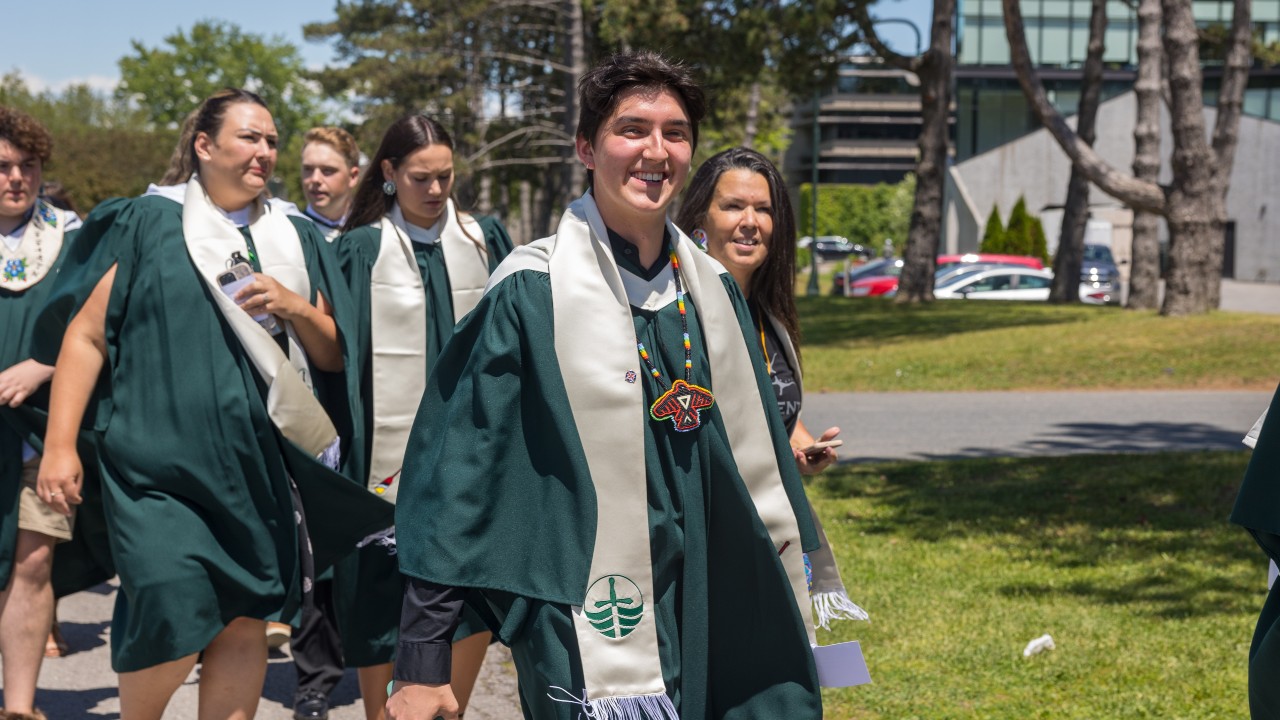Trent University, in Peterborough and Durham, is located on the treaty and traditional territory of the Mississauga (Michi Saagiig) Anishnaabeg, home to Curve Lake First Nation, Alderville First Nation, Hiawatha First Nation, and the Mississaugas of Scugog Island First Nation.
For over 50 years, Trent has been a leader in Indigenous education, becoming the first university in Canada to establish a department dedicated to Indigenous studies.
We honour the land and waters and their original caretakers, celebrating the imaginations, knowledge, and resilience of Indigenous peoples.
Our commitment to reconciliation extends beyond academics, we continually work to create spaces of dignity and respect while fostering dialogue and collaboration.
Guided by local Elders and community leaders, and Indigenous faculty and staff, we integrate Indigenous knowledges, art and language into campus life. We strongly support Indigenous students, staff, and faculty, while amplifying Indigenous voices and worldviews.
With pride in the achievements of Indigenous graduates, we aim to inspire meaningful change within our University, communities, and the world.

Title
Statement of Affirmation and Support
Read about Trent's commitment to collaboration, leadership, and respect.

Title
Cultural Resources
Access resources to support respectful engagement with Indigenous peoples, cultures, and lands.

Title
Campus Initiatives
Read about campus initiatives rooted in Indigenous knowledge, connection to land, and mutual respect.

Title
Indigenous Student Experience
See how Trent University supports Indigenous students’ success and cultural expression.

Title
Academic Programming & Research
Read about Trent’s leadership in Indigenous-focused academic programming and research.

Title
Events & Days of Significance
Learn more about the days of significance for Indigenous communities.


